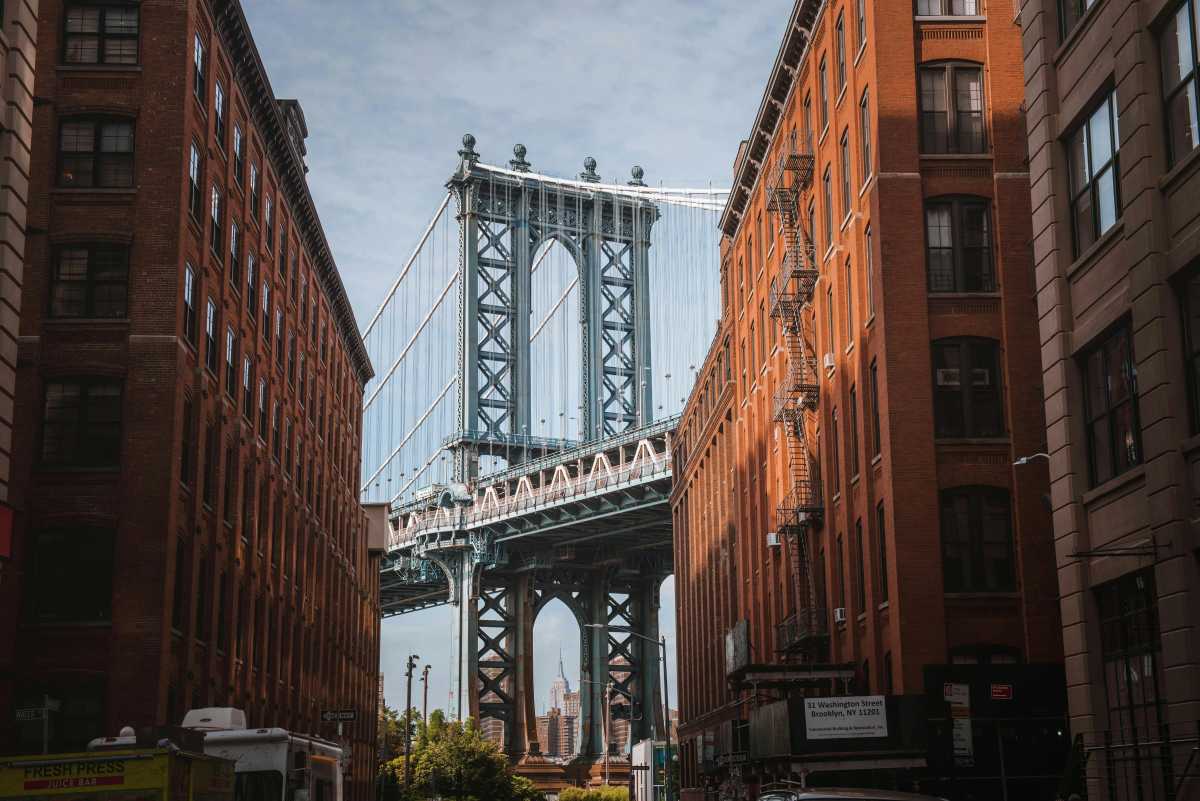The retirement after 24 years of Rep. Major Owens has prompted a free-for-all for a rare open seat in Brooklyn. Residents of the 11th Congressional District — which spans from Brooklyn Heights to East New York and includes parts of Park Slope, Cobble Hill, Windsor Terrace, Prospect Heights and East Flatbush — are fortunate to have an actual debate over who would best serve them, rather than the usual choice between an unaccomplished incumbent and an unqualified opponent.
Some political pundits have sought to make the 11th District race a referendum on the Atlantic Yards mega-development.
Others, as reported by the New York Times on Wednesday, seek to position it as a contest over Iraq — a preposterous notion given the left-wing, anti-Bush consensus among the candidates.
And then there’s race, with three black candidates — State Sen. Carl Andrews (D-Crown Heights), City Councilwoman Yvette Clarke (D-Flatbush) and Chris Owens, the current congressman’s son — sharing the electoral pool with one who is white, City Councilman David Yassky (D-Brooklyn Heights).
On the issues
The candidates agree on most domestic issues — the minimum wage, the estate tax, gay marriage, abortion rights, the environment. And all four oppose the war in Iraq.
But while all the candidates might vote the same on the important issues of the day, there remain vast differences in their style, approach, credibility and integrity.
Atlantic Yards
While Bruce Ratner’s mega-development is a huge issue locally, it is absolutely not the dominant one in a race for Congress.
Ratner’s project is driven by local and state — and not the federal — governments. Federal funds that will eventually become part of government’s billion-dollar-or-so handout to Ratner and his allies will pale beside the gifts granted by New York.
Were Atlantic Yards the only issue, we might be endorsing Chris Owens for his unstinting opposition.
Black & white
From the start, press coverage of “the Fightin’ 11th” focused disproportionately on the race of the candidates. The district was crafted under the Voting Rights Act to ensure that black voters, who comprise the majority of the district, could elect whomever they choose. Shirley Chisholm, a pioneering black leader, was the district’s first representative, followed by Major Owens.
But the Voting Rights Act was never meant to guarantee that a black person gets elected, only that the district’s black majority has its say. Thanks to the free-for-all primary, black voters are as empowered as ever.
All candidates being equal, our preference would be that the district remains represented by a person of color, given the paucity of black faces in Congress.
But all candidates in this race are not equal, and the most important consideration is that the district elect an effective leader who can strongly defend the interests of its black majority and white minority.
• • •
So who is that candidate?
Chris Owens brings passion and intelligence to the battle over Atlantic Yards, but he also has a naivete about the big world that members of Congress are sometimes forced to confront. Owens is right that we would have been better off not going to war in Iraq, but there are times when the United States does need to defend its interests with might. Owens indicated to our editorial board that there is almost no fight he’d be willing to join.
Clarke supports Atlantic Yards — yet fails to see that the district’s black population will continue to shrink if Ratner’s engine of massive gentrification is built. That she is blind to this fact is a serious flaw in her candidacy.
She is also clueless on world affairs, even lacking Owens’s starry-eyed idealism. We really don’t know what, if anything, she stands for. Responding to questions, she often took opposite sides of the same position. It’s no wonder that she could not recall that she had not graduated from college or failed to pay back student loans.
In addition to other flaws, Andrews has not even attempted to cleanse himself of his association with the disgraced former Brooklyn party leader Clarence Norman, a relationship which first got Andrews his state Senate job and went on to fill his campaign coffers. At long last, has he no shame over this relationship? His four years in the Senate have been undistinguished.
Our choice
That is why David Yassky is our choice for Congress in the 11th District.
Wonk-like in demeanor and a bit stiff on the campaign trail, Yassky is unlike many politicos — he actually makes a difference.
In his term-and-a-half as a city councilman, he’s pushed the mayor to mandate affordable housing as part of the rezoning of the Williamsburg and Greenpoint waterfronts; worked to revise taxicab codes to provide for hybrid cabs; helped keep film companies, with hundreds of union jobs, working in New York City; and continued the fight — begun when he was an aide to then-Rep. Charles Schumer — against gun manufacturers.
We’re not pleased by the strong support he receives from developers who fill his campaign war chest. Or with the fact that he moved to New York City from Washington, D.C. after the imposition of term-limits created open seats on the Council — or that he again moved so that he would reside within the 11th District before running for the seat.
But while Yassky has been supportive of development, he has also listened to the critics of the Atlantic Yards project. Yes, he supports Bruce Ratner building at that site, but at last week’s state public hearing he reiterated his position that the development must be halted if it is not scaled back.
As Yassky demonstrated in the City Council, he doesn’t just issue press releases or make speeches, but makes deals with those who have other agendas and priorities.
Yassky is clearly the best candidate for the job. Our guess is that once he gets to Washington, all voters will see what a gifted, energetic legislator like Yassky can deliver.























